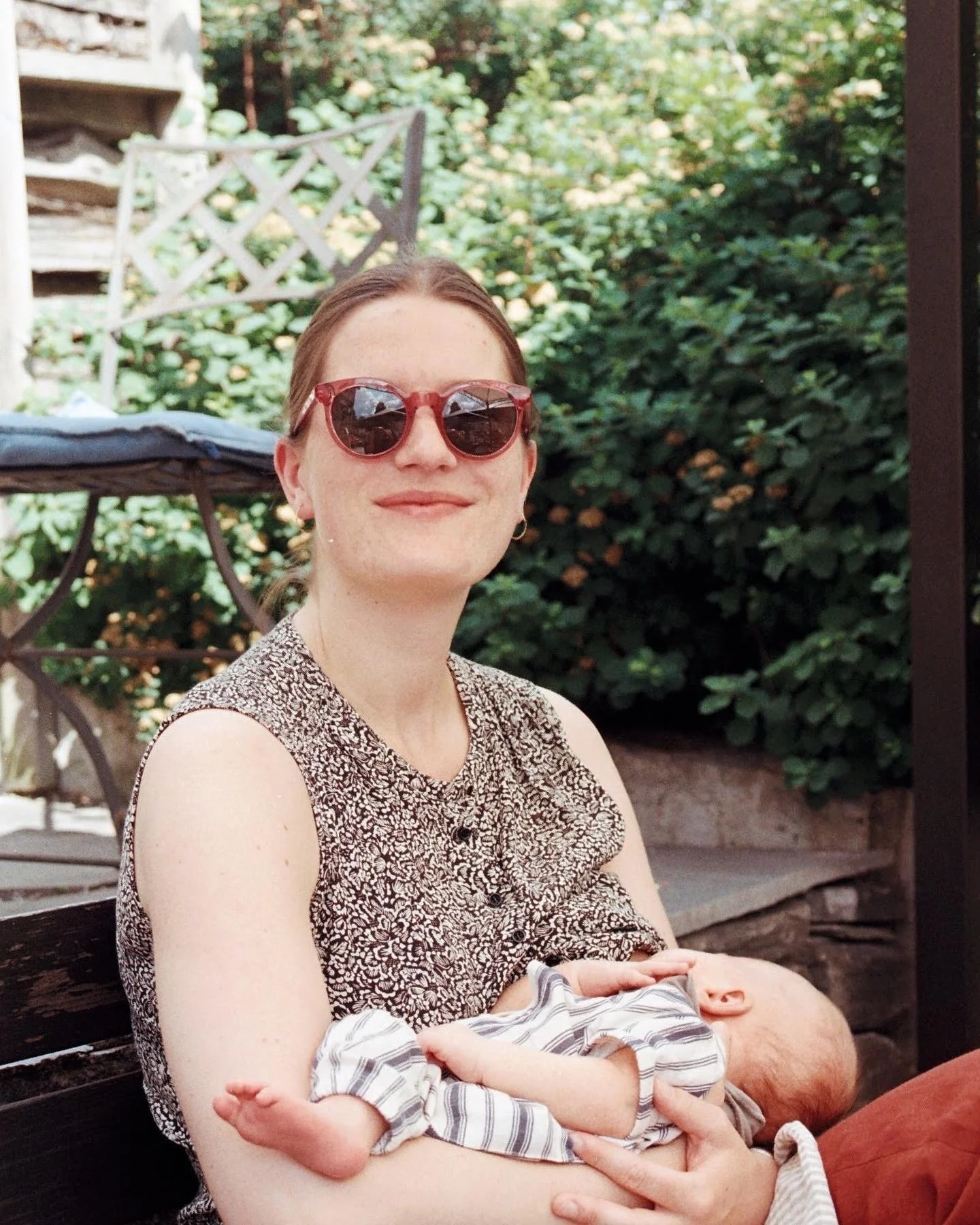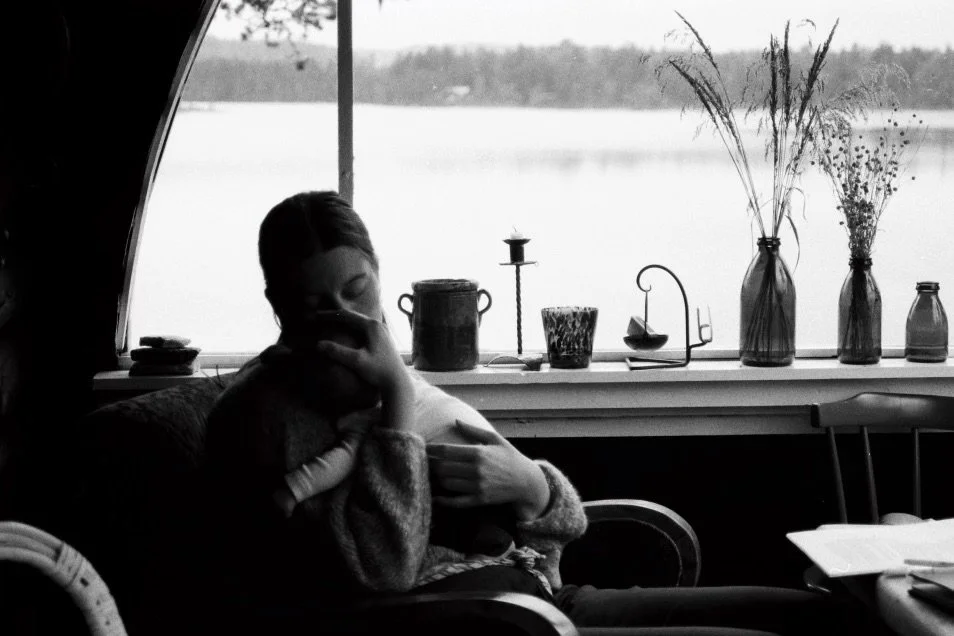Trauma affects how you show up for yourself, how you connect to other people, and why you experience life the way you do. Healing trauma changes your life.
WHY TRAUMA MATTERS
We come into the world with great instincts
Our basic instincts is to go to connect, love unconditionally, and be authentic, and we learn from the experiences we have with people, and are shaped by these experiences, in fundamental ways that are hard to escape.
When we connect to unsafe people around us, meaning all people who are themselves not authentic, not vulnerable, not without a mask, authenticity leads to pain.
Because most of us grow up with complex traumas, meaning environments where we are not really seen, heard, free to express ourselves, or connect and love just by being, not earning or doing anything to get it, and because it is life and death in our bodies when we try to break out of the prisons we end up making our world as, we tend to repeat the cycles, and end up feeling utterly alone in this big place that is the world.
What is a trauma?
Trauma is what happens inside you, when you are affected by events that are too overwhelming, your nervous system can not handle in, you go to fight-flight, freeze or fawn, as a results of an event or ongoing events, or danger.
Most people do not think they have traumas to be solved, but 8 out of 10 of us do.
Traumas are not only the abuse that some of us go through; Trauma is also what we needed but didnt get, and all we needed to express, be, and become, that we had to change, or hide, and all the adaptations we had to learn in order to get some of our needs met, to cope, to survive, are all clever adaptations by our bodies, but also, it becomes evident often too late, 20-30 years after, when we are in committed realtionships ourselves, have become parents ourselves, and suddenly discover, that something is not working, i am hurting the people i love, and i am hurting myself.
Traumatic events are both what has happened to you, ex abuse, or when something good should have happened to you, without happening: a child should be loved unconditionally, a child should be able to be athentic, their emotional needs should have been met. What did not happen, our emotional needs not being met, is invisible, we learn that we are not accepted, nobody wants to connect with me, and we conclude, that then there must be something wrong with me: I feel alone in this world, I get abandoned, I am afraid all the time. These types of trauma happens with 80% of us, and it affects the brain in the same way that abuse does.
Why do we adapt?
Why do we adapt, why do we change the beautiful, trusting, instincts that we are born with? We adapt because we have to, and it is a good thing for us that we do, bacause not doing it, would have made life and our development worse. We are evolved to adapt, and to make sure we get some of our needs met, if we learn that we can not get all our needs met. It would not have been good to fight agains the people we depend on as kids, so we do not, we adjust, we tune into the ryhym that we are placed in, it all happens naturally, and it unfolds, without signs of damage in childhood and early adult life. But then, when we enter adult intimite realtionships, and we discover, that we have unresolved trauma and adaptations that are breaking our bonds, keeping us locked in our minds, unable to connect in a healthy way, or love unconditionally, and it is no wonder, as we unlearned this through our traumas growing up, and now, we have to connect again, and solve our traumas, heal our brains, and reconnect to ourselves, and the safe people around us.
How do we adapt?
Both trauma in terms of abuse and trauma in terms of not getting our needs met when we grow up, are effecting us in the same damaging ways. It tend to happen in the relationships that we depend on when we grow up. Our bodies are designet to react to danger with fight or flight, but when we depend on the people that hurt us to survive, we can not defend ourselves or run away. We can freeze, we can dissociate, we can escape from our external world, where we get hurt, to an internal world, where we feel safe, but also then, we fawn, we have to learn how to get our needs met from the people who dont see us, hear us, accept us, reject us, punish us, so we learn to be what they want us to be: we learn to people please, to wear a mask, to be sensitive to their beliefs, their moods, their needs, and you think that if only i can take care of them, they will take care of me. We adapt in many different ways to become what others wants us to be, to try to get love, respect, to try not to get hurt, in order to survive. These adaptations which enable us to survive, and get some of our needs met, they also mean that we learn that we can never trust anyone, we learn that we need. tomanipulate in order to get our needs met, you were a mask, you never say no, you people please.
In 80% of us, not growing up with our emotional needs being met, dont get to express ourselves authentically, we don´t see the damage by our adaptations, until 20-30 years after we develop them. We become adults in committing relationships ourselves, we become parents, and if we live from the same adaptations, we destroy our relationships. We hurt the people that we love, and we hurt ourselves.
Trauma and the brain
Trauma effects the mind, it effects the brain, the nervous system, the immun system, our relationships, how we cope, everything in our lives traumas effect negatively,
When we are in danger, remember not only abuse or physical danger, but also being in environments where we are not safe to be or express ourselves, the brain pumps out cortisol and then adrenalin, for you to be able to fight or flight. Cortisol is designed as a short bursts that gets you to safety, and then shuts of once you are in safety again. Problems arise when we grow up never feeling in safety, as for most of us in terms of not getting our needs met, not being seen or heard, cortisol is always pumping, and when it is always pumping, it damages the brain. The bridge, corpus callosum, that joins the two hemispheres of the brain, erodes. Our brain stores memories, the parts that concerns details in the left lobe, parts that concerns emotion in the right, and the bridge, allows your brain to integrate these. When the bridge is gone, you will experience memory gaps, you can get emotional flashbacks, and feel overwhelmed with emotion without knowing why, or you can remember details and resite what happened without emotion, because there is no connection.
Your brain will heal when you are in safety.
Martine Cassiora
“This concerns us all, because 80% of us, experience danger in early realtionships, have bodies in constant fight or flight, end up with either too much emotion, or too little, and with issues in relationships, and repeat the patterns that are so deeply installed in us, literally in our brains. If it hasnt happened to us, the odds are high that the person we partner up with, has experienced trauma, or someone we know. What is more important than knowing about the damage being done to us, and the damage we then do, to others, our relationships, and ourselves, is, that there is a way out: the brain will begin to repair itself, the bridge between our hemispheres will restore itself once cortisol is shut off, we can begin our journey to heal, connect, and experience unconditional love, through away our masks, and live authentically, creatively, from a place of potential and possibility, not just survival, and fight or flight, concerning not us in isolation, but us against the world, which is, obviously, a battle to loose, as social beings we are evolved to be together in safe environments, where we can be uniqly individual, without risk of being judged or loose our tribe.”
Complex trauma; Always in danger
And more about the brain:
What is developed first is our brain stem: All our autonomic functions, our pulse, heartbeat, digestion, etc. It keeps us alive.
Then develops the limbic system: the child brain, our survival system, our emotion center
Then cortex: our adult brain, thinking brain, reason, make decisions, think long term, etc.
When we experience long term trauma (that a lot of us do), we are put in danger, in fear, and in control by the limbic brain, where our acts are determined by our feelings, not by advanced reasoning. Being stuck in the limbic way of life, is being emotional immature, unable to think clearly, do to the cortisol being pumped out and shutting the cortex down. Also, the subconscious beliefs being formed in our early relationships, affects how we act in ways we dont see.
In our purest potential, we seek to connect, be authentic, love unconditionally, but when we get rejected, judged, punished, we then learn and believe that authenticity equals rejection. Authenthicity never leads to connection, it leads to pain. We develop beliefs about the world from an unsafe place, which keeps us trusting only ourselfs, separated from the rest of humans and the world, and the reason for this, we conclude, is due to a lack in ourselves.
If im going to get love and respect, i will have to be perfect, i have to be very hard on my self, control myself, pushing, never giving yoursel a break, get depressed, and defeated, because the bar was set unrealisticly high, but we can not lower the bar, because then we dont deserve the love, that we are learned
I can not say no
Authenticity is always bad, never trust anyone
The reason i am not being love, must be because i am not good enough, or valuable
We set up prison after prison
Our whole value system is based on a lie: we will not just get love, we need to earn love, earn happiness, through a position, possessions, a great body, etc. (and these often develop into addictions)
What we learn in unsafe relationships
If I express and stand up for my needs, we get told that we are a bad person, selfish, unloving, a narssisist,
The way you get love, is to act very small, and treat the other as very big
I am alone
I am alone
A child is trying to connect, and when it gets rejected, if they are authentic and they are being judged, they feel abandoned, nobody is there for me, nobody has my back, parent are there for me sometimes, but they are too busy, parents have their own issues. We are left with a tremendous feeling of being alone, and being abandoned. Nobody really sees me, cares for me, and one of the most painful emotions, is abandoment, because it makes us think, that i must be of no value, nobody wants to be with me, and it creates a fear, that i will never experience being abandoned again, but we also have an instinct that we want to connect, we need to connect, i want intimacy, love; so we want intimacy but we are afraid of intimacy, we want love but we are afraid of love, we want connection, but we are afraid of connection.
“You think that you want intimacy, but your fear of abandonment, makes you sabotage, develop all these behaviors, that drive people away from you, and eventually, you get what you most fear, you get abandoned, again, and again.
— Martine Cassiora
We enter relationships, we fall in love, but then, when we get closer, you get scared, if they get to know you, if they really see you, they will abandon you, and this causes you to go into behaviors to try to prevent abandonment, but what happens, is that you create abandonment. You think you are in love, but the fear of abandonment is triggering you, so if your partner do not give you 100% in a single moment, or do not understand you 1:1, you conclude that is it, that is prove, and we turn against our partner, you are rejecting me, you are about to leave me, and you go from 0-100 in a second, get in a panic, and a fear. You have created a prison: you do not want to be abandoned, but you can not break out of all of these behaviors out of fear of abandonment, and you end up creating that your partner is actually going to abandon you. Another thing that happens, is that you sabotage.
We have an innate ability to hope, we want good things, but we are scared to get good things, so we start to sabotage
Hope and disappointment
as a child who can not connect in its environement, is not getting its needs met, their brain is in pain, and the brain is coming up with options on how they can fawn: what can i do to make my parents like me, what can i do to make them connect with me, we can can come up with all these options, i can get better marks at school, i can do more at home, i can take an interest in my parents favorite activity in sports, starts on option a, gets their hopes up, expect to now get their needs met, i will not get hurt anymore, and then they dont get their needs met, and they get their hopes ruined. But the brain do not see the problem, and goes directly to plan be, the hopes gets up, but then the spiral keeps going, and hopes gets ruined, again and again. This can go on for years, the child keeps hoping, this might work, this might work, this might work, but eventually, they experience, that it hurts to much to get their hopes ruined, it is not going to happen, i will never get my needs met, im not going to get accepted, i have to stop hoping, because when i hope, i set myself up, to be extra hurt. 20-30 years from this place, the same person gets into a realtionship with a safe person, and then they start to hope, that they are finally going to get a healthy realtionship, and the back of their brain reminds them, that this is hope, and everytime you have hoped, you have gotten ruined, and hurt, so the best thing to do, is to sabotage the relationship, get it over with, stop it before it starts, you bring it to an end yourself. Any growth, any positive think in their life, reignites hope, and their brain is afraid of hope, it wants good things, but is afraid of good things, so it sabotages, and it creates a prison. Every time you start to grow and heal, you sabotage it, and get back to where you started.
The child learns early in fawning that if i am going to get my needs met, my needs in a relationshop, i have to put my needs down, and make the others needs important. I have. toget attuned to their needs, their emotions, their thinking, self-secrifice, put them first, give, give, give, as it is the only way to get love. The child is learning codependency, that relationships are a superior person and an inferior person, and if you want love, you have to be the inferior person, and play that role. If the child ever stood up for themselves, they got told that they were selfish, or that they were a bad person, they got punished for it, and they did not get love. Thats now in their relationship template, their belief system, it is based on a lie, but it was true for them, and when they get into adult life, and into a relationship, and think that the way to get love, is to make yourself very small, make the other person very big, and they set up relationships: inferior-superior, and they set up realtionships to fail, and to potentially also be abusive.
The child also learns that if i am going to get love, i have to be perfect, and into adult life they push themselves, never give themselves a break, get burned out, depressed, and defeated, because the bar was set unrealistically high, but they can not lower the bar, because if they do, and say, i am only human, then i am bad, an i am weak, and nobody will respect me.

Not only to learn information, but to connect, and experience love
Being with safe people is essential to heal
It is essential to be in safe relationships to heal from trauma, but it is life and death in our minds and bodies, because when we have tried to connect, we have gotten hurt. We have to risk being vulnerable, authentic, it is essential, and leads to deep healing, when in safe realtionships.
In Safety
When we are back in safety, when the brain stops the constant pumping of cortisol, your brain begin to heal, the bridge that connect your two hemispheres, they can begin to connect again, your intellect and your emotion can integrate to give you an understanding of what has happened to you, and you will be able to work through it, and heal
You can break free & you can heel
Not through watching inspirational videos, but trough practice.
Healing trauma from the top to bottom, from the cortex and conversations, are not effective to begin with; through going bottom up, from the brain stem, and calming your nervous system, you get in a position, to heal your brain, and start the journey of changing the way you connect, love, and trust people in the world.
Knowledge is not enough, understanding is not enough, we need to know what healthy looks like, we need to get some tools, and learn how to regulate ourself when we are upset, how to talk to ourselves.
We learn that sometimes we can get triggered and be unable to think, and thats when bottom up is very useful, you calm the brain down (survival mode) not through talking, but through ways to calm the brain down, regulate that limbic brain, get to a grounded brain, the cortex, where you can operate from your wisdom.
Insight alone will not put us in a position to reconnect to our authentic selves.
-
Healing happens sporadically and in times of triggering. There is a few very intense and effective therapy styles, but it can take from 6 months to 12 months to change the subconscious programming.
-
-

How to Break Free
Learn more
Hear the Pain
Learn to listen to and understand trauma – its roots, its symptoms and its profound impact on your life.
Empower yourself to heal
Discover strategies and tools to regain control, manage triggers, and heal from within.
Align Your Relationships
Heal your relational wounds and create meaningful, healthier connections with others.
Lifelong Healing
Integrate habits and routines that ensure your healing journey lasts throughout your life.
The Shame History of the Self
Learn how shame and the stories we tell ourselves maintains our suffering.
Routines and habits for Lifelong Healing
Build sustainable practices to prevent relapse, foster resilience, and maintain emotional freedom throughout your life.
How to support a loved one who has experienced trauma
How to integrate habits and routines that ensure your healing journey throughout your life.
How to raise resilient children
Exlore how you can act and the strategies you can use to nurture independence, emotional awareness, and resilience in your children.
Trauma and parenting: How to break the cycle
Learn how to prevent generational trauma and how to raise emotionally resilient children.
Heal as a Couple: How to navigate trauma together
Explore how trauma impacts your intimate relationships and discover ways to heal and grow as a couple.
Reconnect with nature and your body to Heal
Harness the healing power of nature, and somatic practices, to deepen your recovery journey.
How to be compassionate in your daily life
Learn the transformative power of being compassionate towards yourself, to foster self-awarness and emotional growth.
Practical approaches and exercises
Apply practical exercises and techniques to integrate strategies into your life.
Strategies and Therapies for healing trauma
Learn about effective therapies: from somatic practices to brain-based therapies, and learn how to find out what works for you.
How to deal with triggers and self-destructive reactions
Get an emergency toolkit to handle emotional crises and self-sabotaging behaviors.
How trauma affects your mental and emotional wellbeing
Uncover how trauma contributes to anxiety, depression, and other mental health challenges, and why healing is essential.
How trauma impacts your physical health
Exlore the deep connection between trauma and chronic illnesses, and learn how addressing trauma can alleviate physical pain.
Authenticity vs. Attachment: The inner conflict that shapes our lives
Discover how the conflict between attachment and authenticity from our childhood shapes our life and learn why reconnection with our true self is essential for healing.
How do I recognize trauma in my own life?
We smile, we wear masks, we believe in the depth of our brain that there is, or could be, truly something wrong with us, so we hide, we want to connect, but we are scared to connect, we want to love, but we are scared to love, we want intimacy, but we are afraid of intimacy.
Learn how to identify both the obvious and hidden ways in which trauma runs your life: from recurring patterns to physical and emotional symptoms.
What is trauma?
Here you will gain an understanding of what trauma is about and learn how it shapes your physical and emotional experiences (all your experiences really)



























Uncover how trauma contributes to anxiety, depression, and other mental health challenges, and why healing is essential.